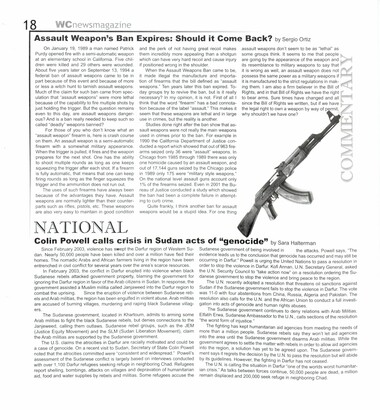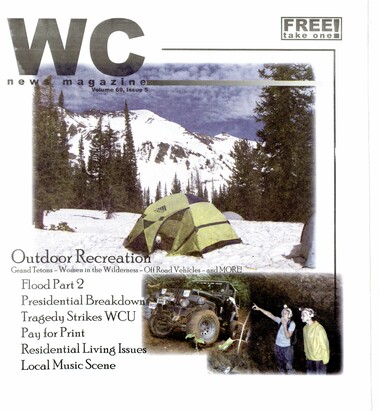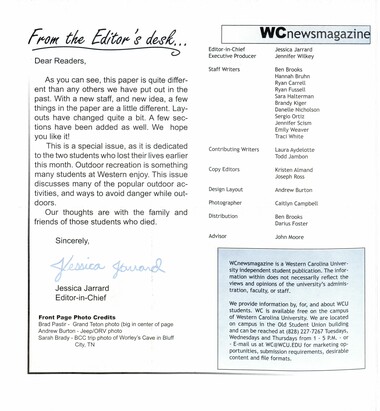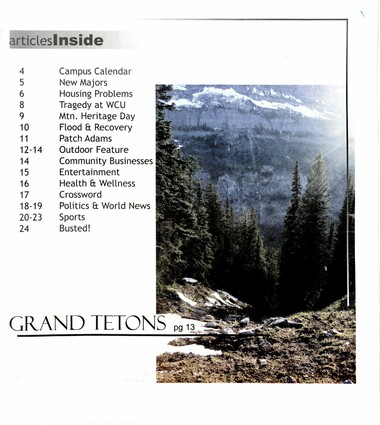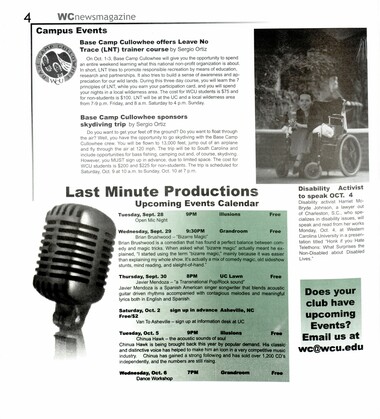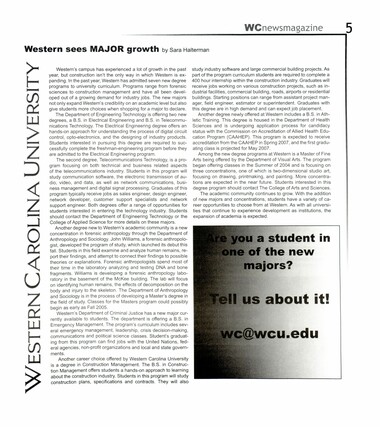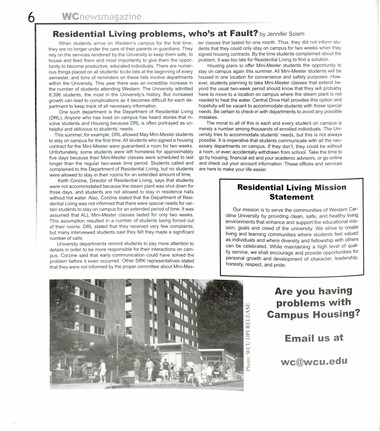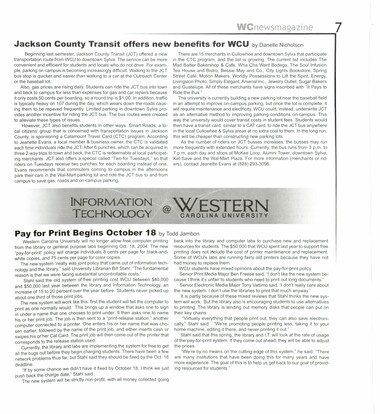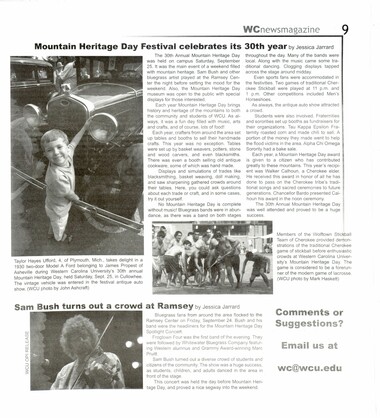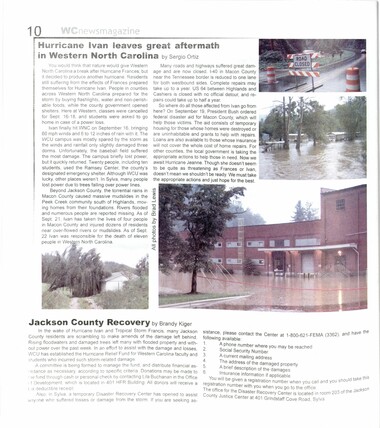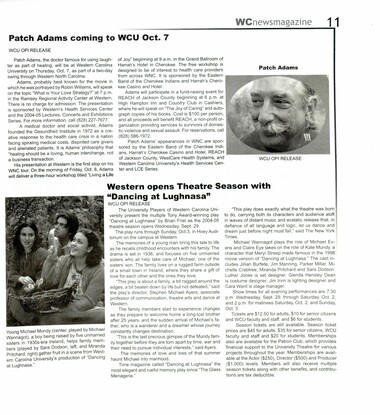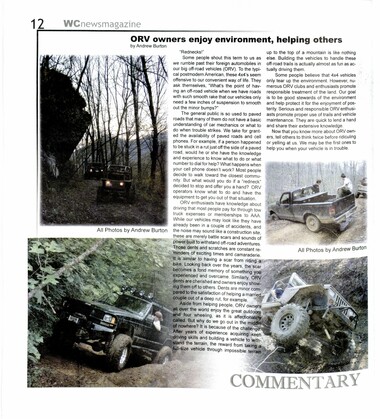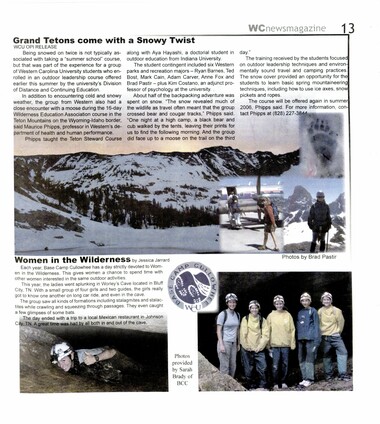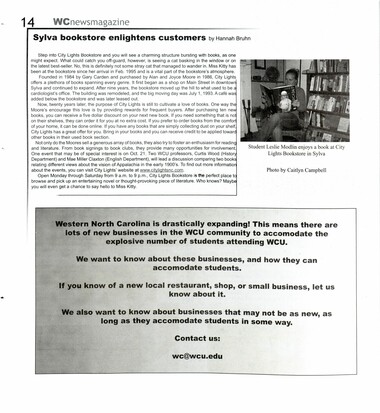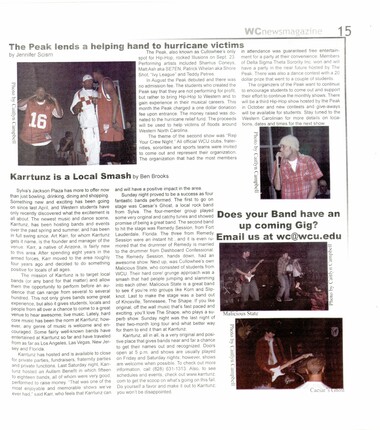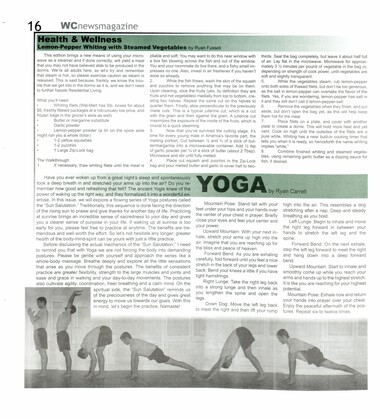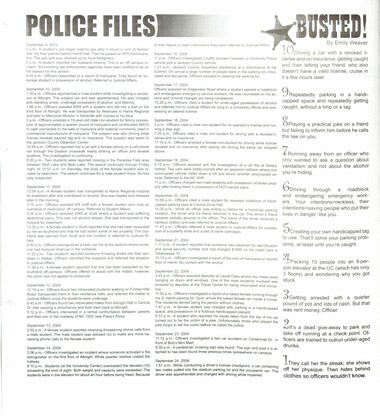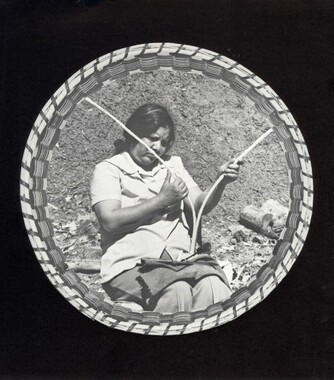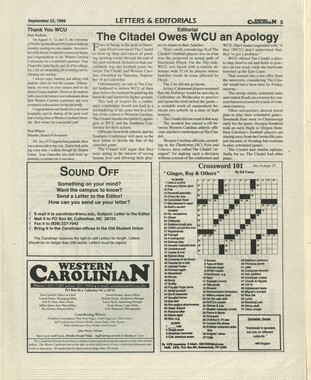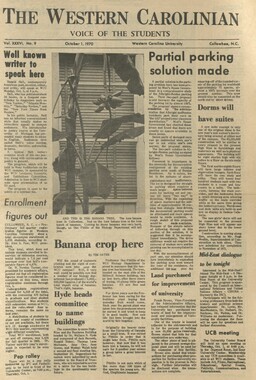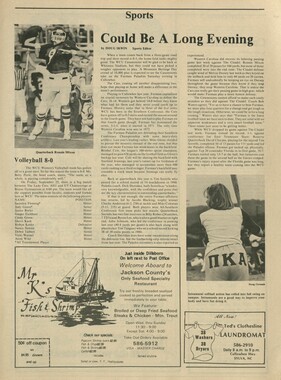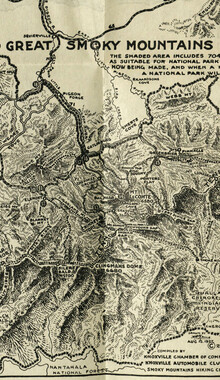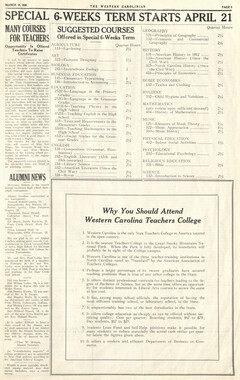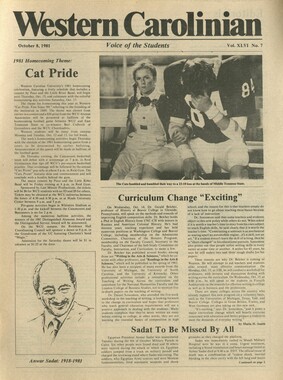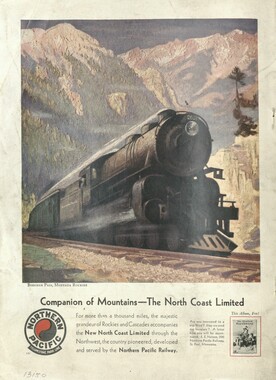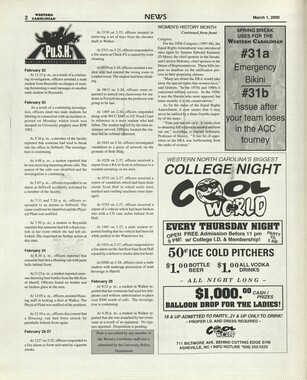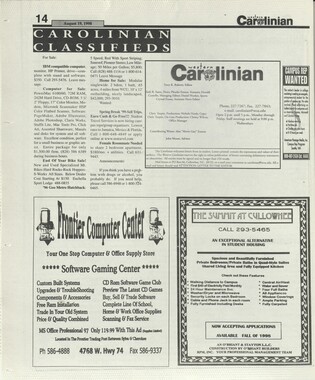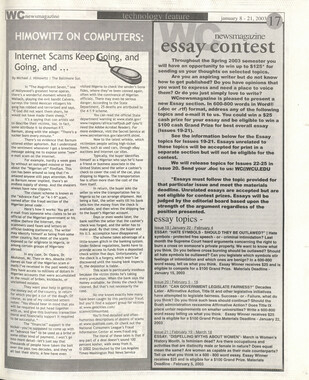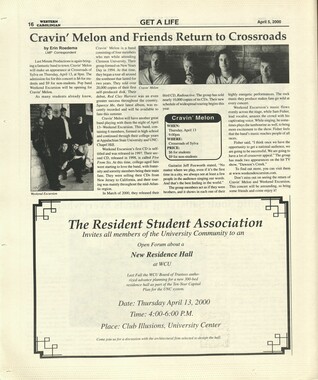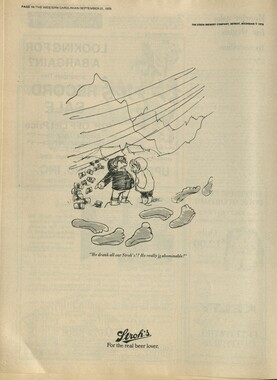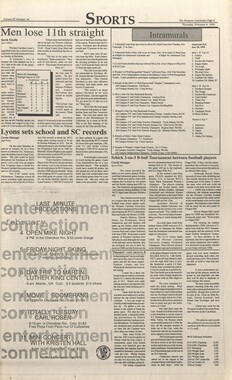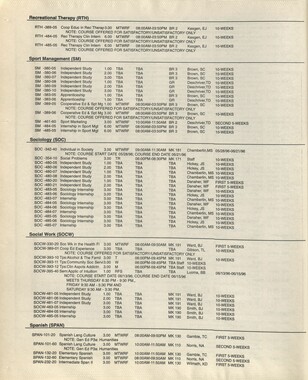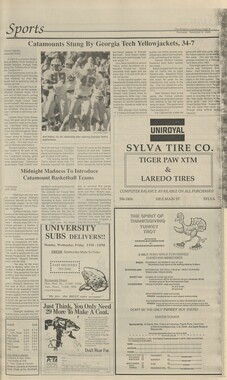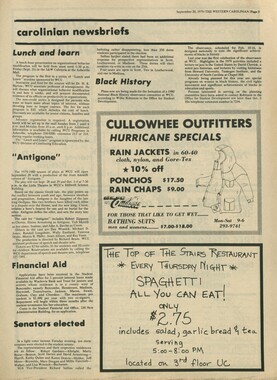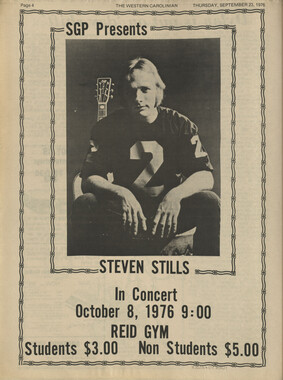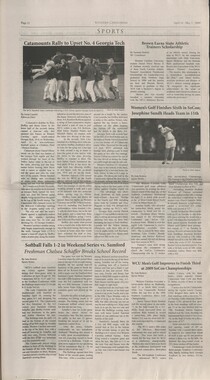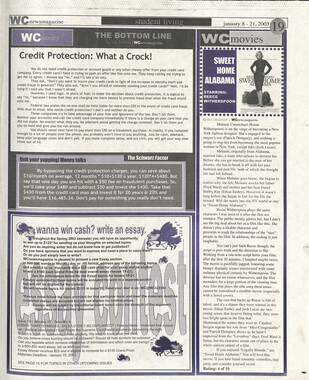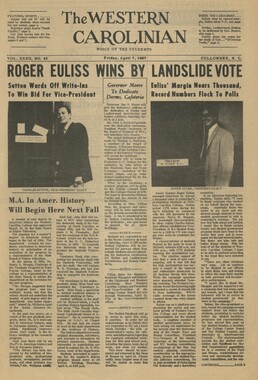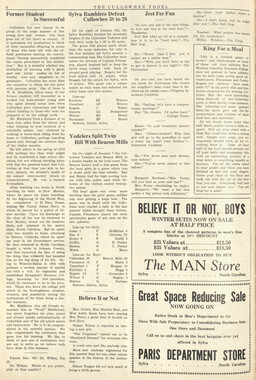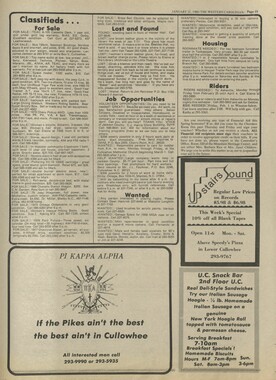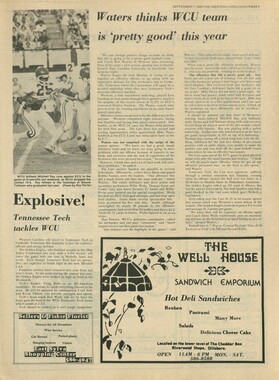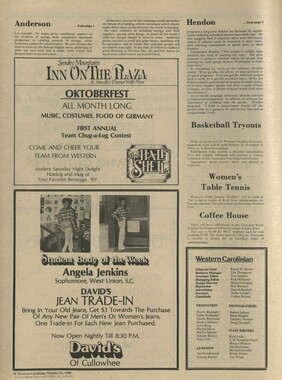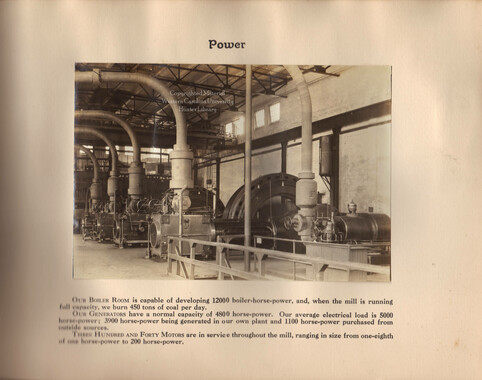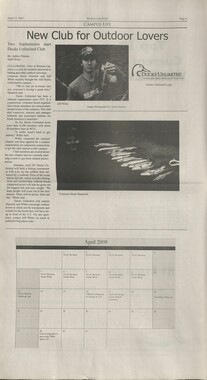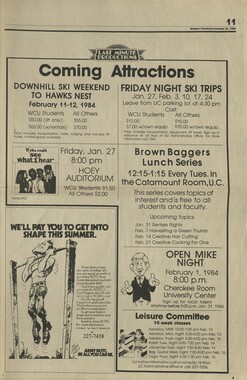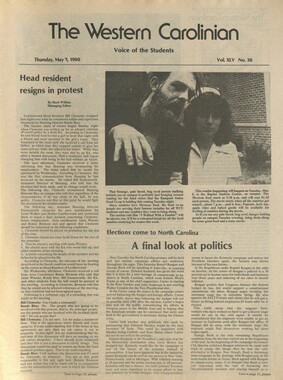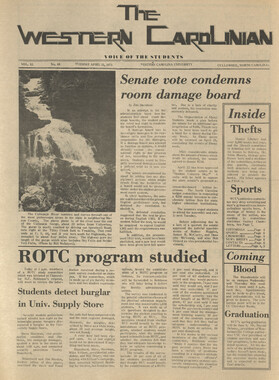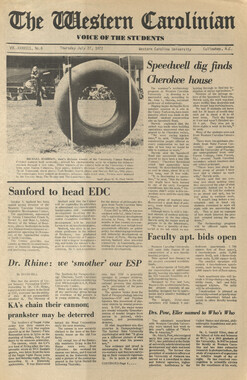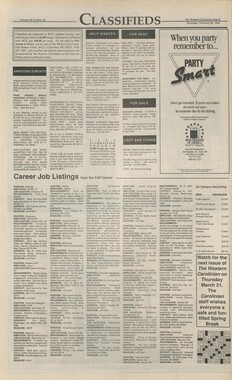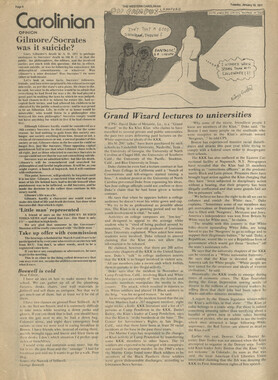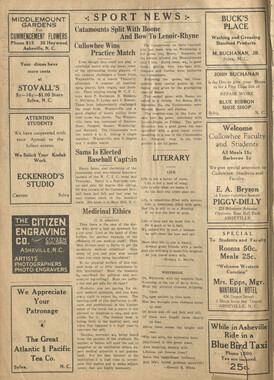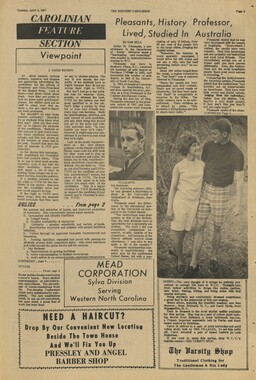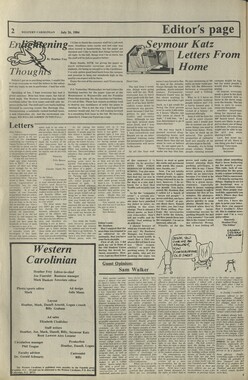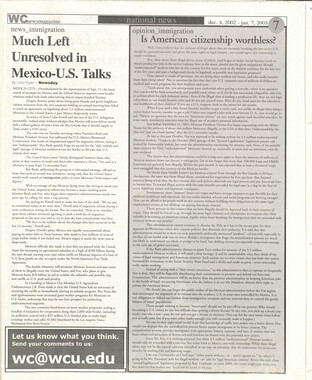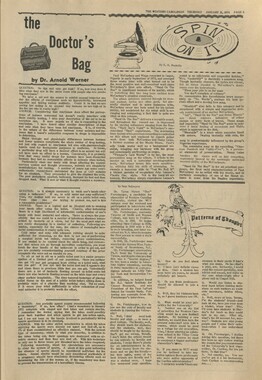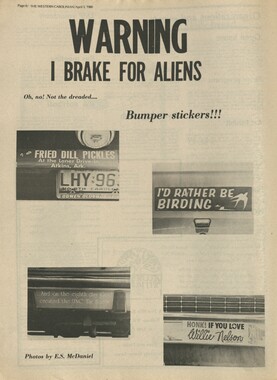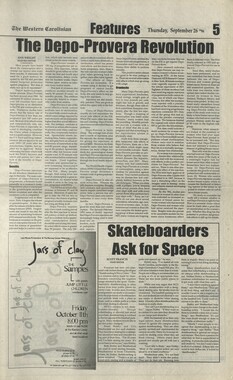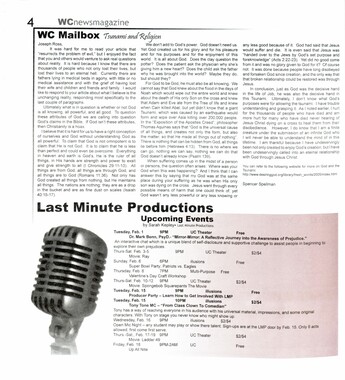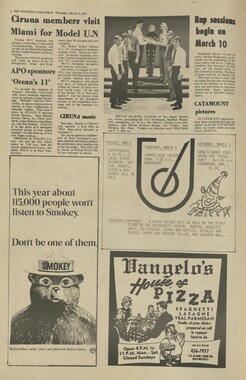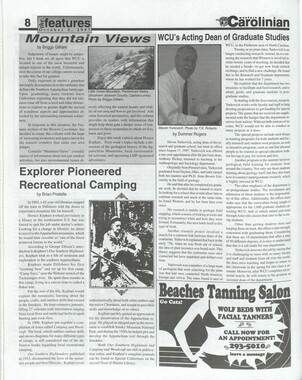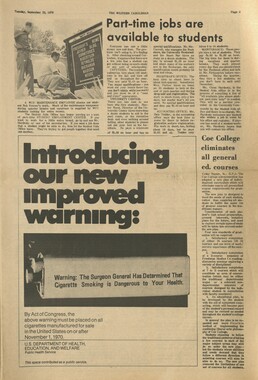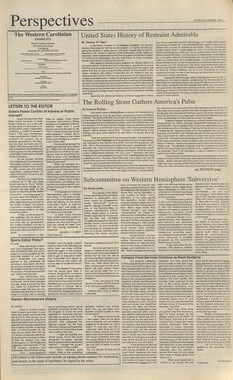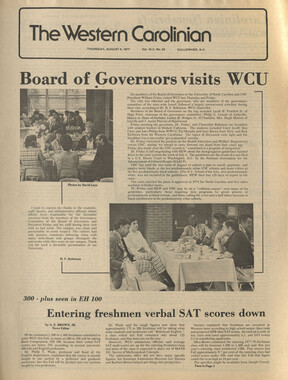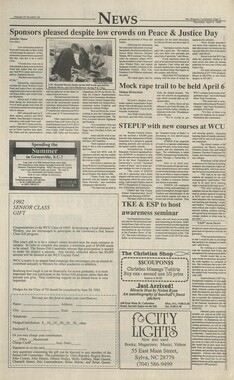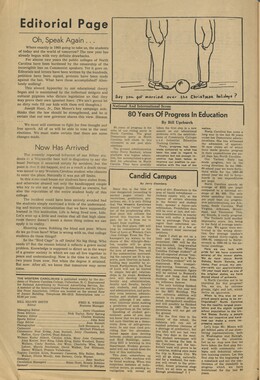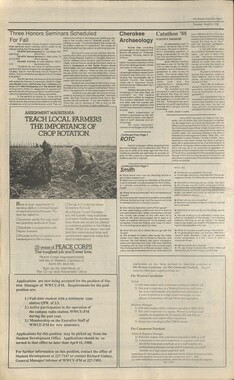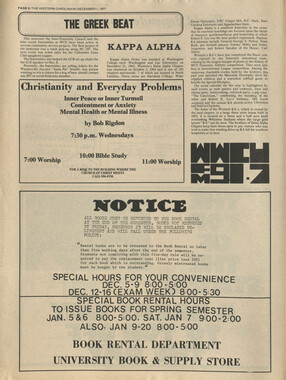Western Carolina University (20)
View all
- Canton Champion Fibre Company (2308)
- Cherokee Traditions (291)
- Civil War in Southern Appalachia (165)
- Craft Revival (1942)
- Great Smoky Mountains - A Park for America (2946)
- Highlights from Western Carolina University (430)
- Horace Kephart (941)
- Journeys Through Jackson (159)
- LGBTQIA+ Archive of Jackson County (85)
- Oral Histories of Western North Carolina (314)
- Picturing Appalachia (6873)
- Stories of Mountain Folk (413)
- Travel Western North Carolina (160)
- Western Carolina University Fine Art Museum Vitreograph Collection (129)
- Western Carolina University Herbarium (92)
- Western Carolina University: Making Memories (738)
- Western Carolina University Publications (2491)
- Western Carolina University Restricted Electronic Theses and Dissertations (146)
- Western North Carolina Regional Maps (71)
- World War II in Southern Appalachia (131)
University of North Carolina Asheville (6)
View all
- Allanstand Cottage Industries (62)
- Appalachian National Park Association (53)
- Bennett, Kelly, 1890-1974 (1463)
- Berry, Walter (76)
- Brasstown Carvers (40)
- Carver, George Washington, 1864?-1943 (26)
- Cathey, Joseph, 1803-1874 (1)
- Champion Fibre Company (233)
- Champion Paper and Fibre Company (297)
- Cherokee Indian Fair Association (16)
- Cherokee Language Program (22)
- Crowe, Amanda (40)
- Edmonston, Thomas Benton, 1842-1907 (7)
- Ensley, A. L. (Abraham Lincoln), 1865-1948 (275)
- Fromer, Irving Rhodes, 1913-1994 (70)
- George Butz (BFS 1907) (46)
- Goodrich, Frances Louisa (120)
- Grant, George Alexander, 1891-1964 (96)
- Heard, Marian Gladys (60)
- Kephart, Calvin, 1883-1969 (15)
- Kephart, Horace, 1862-1931 (313)
- Kephart, Laura, 1862-1954 (39)
- Laney, Gideon Thomas, 1889-1976 (439)
- Masa, George, 1881-1933 (61)
- McElhinney, William Julian, 1896-1953 (44)
- Niggli, Josephina, 1910-1983 (10)
- North Carolina Park Commission (105)
- Osborne, Kezia Stradley (9)
- Owens, Samuel Robert, 1918-1995 (11)
- Penland Weavers and Potters (36)
- Roberts, Vivienne (15)
- Roth, Albert, 1890-1974 (142)
- Schenck, Carl Alwin, 1868-1955 (1)
- Sherrill's Photography Studio (2565)
- Southern Highland Handicraft Guild (127)
- Southern Highlanders, Inc. (71)
- Stalcup, Jesse Bryson (46)
- Stearns, I. K. (213)
- Thompson, James Edward, 1880-1976 (226)
- United States. Indian Arts and Crafts Board (130)
- USFS (683)
- Vance, Zebulon Baird, 1830-1894 (1)
- Weaver, Zebulon, 1872-1948 (58)
- Western Carolina College (230)
- Western Carolina Teachers College (282)
- Western Carolina University (2008)
- Western Carolina University. Mountain Heritage Center (18)
- Whitman, Walt, 1819-1892 (10)
- Wilburn, Hiram Coleman, 1880-1967 (73)
- Williams, Isadora (3)
- Cain, Doreyl Ammons (0)
- Crittenden, Lorraine (0)
- Rhodes, Judy (0)
- Smith, Edward Clark (0)
- Appalachian Region, Southern (2693)
- Asheville (N.C.) (1936)
- Avery County (N.C.) (26)
- Blount County (Tenn.) (195)
- Buncombe County (N.C.) (1672)
- Cherokee County (N.C.) (283)
- Clay County (N.C.) (556)
- Graham County (N.C.) (236)
- Great Smoky Mountains National Park (N.C. and Tenn.) (519)
- Haywood County (N.C.) (3569)
- Henderson County (N.C.) (70)
- Jackson County (N.C.) (4913)
- Knox County (Tenn.) (35)
- Knoxville (Tenn.) (13)
- Lake Santeetlah (N.C.) (10)
- Macon County (N.C.) (420)
- Madison County (N.C.) (215)
- McDowell County (N.C.) (39)
- Mitchell County (N.C.) (132)
- Polk County (N.C.) (35)
- Qualla Boundary (982)
- Rutherford County (N.C.) (76)
- Swain County (N.C.) (2182)
- Transylvania County (N.C.) (270)
- Watauga County (N.C.) (12)
- Waynesville (N.C.) (86)
- Yancey County (N.C.) (72)
- Aerial Photographs (3)
- Aerial Views (60)
- Albums (books) (4)
- Articles (1)
- Artifacts (object Genre) (228)
- Bibliographies (1)
- Biography (general Genre) (2)
- Cards (information Artifacts) (38)
- Clippings (information Artifacts) (191)
- Copybooks (instructional Materials) (3)
- Crafts (art Genres) (622)
- Depictions (visual Works) (21)
- Design Drawings (1)
- Drawings (visual Works) (185)
- Envelopes (73)
- Exhibitions (events) (1)
- Facsimiles (reproductions) (1)
- Fiction (general Genre) (4)
- Financial Records (12)
- Fliers (printed Matter) (67)
- Glass Plate Negatives (381)
- Guidebooks (2)
- Internegatives (10)
- Interviews (815)
- Land Surveys (102)
- Letters (correspondence) (1013)
- Manuscripts (documents) (618)
- Maps (documents) (177)
- Memorandums (25)
- Minutes (administrative Records) (59)
- Negatives (photographs) (6090)
- Newsletters (1290)
- Newspapers (2)
- Notebooks (8)
- Occupation Currency (1)
- Paintings (visual Works) (1)
- Pen And Ink Drawings (1)
- Periodicals (193)
- Personal Narratives (10)
- Photographs (12976)
- Plans (maps) (1)
- Poetry (5)
- Portraits (4568)
- Postcards (329)
- Programs (documents) (181)
- Publications (documents) (2443)
- Questionnaires (65)
- Relief Prints (26)
- Sayings (literary Genre) (1)
- Scrapbooks (282)
- Sheet Music (2)
- Slides (photographs) (402)
- Songs (musical Compositions) (2)
- Sound Recordings (796)
- Specimens (92)
- Speeches (documents) (18)
- Tintypes (photographs) (8)
- Transcripts (322)
- Video Recordings (physical Artifacts) (23)
- Text Messages (0)
- A.L. Ensley Collection (275)
- Appalachian Industrial School Records (7)
- Appalachian National Park Association Records (336)
- Axley-Meroney Collection (2)
- Bayard Wootten Photograph Collection (20)
- Bethel Rural Community Organization Collection (7)
- Blumer Collection (5)
- C.W. Slagle Collection (20)
- Canton Area Historical Museum (2110)
- Carlos C. Campbell Collection (462)
- Cataloochee History Project (64)
- Cherokee Studies Collection (4)
- Daisy Dame Photograph Album (5)
- Daniel Boone VI Collection (1)
- Doris Ulmann Photograph Collection (112)
- Elizabeth H. Lasley Collection (1)
- Elizabeth Woolworth Szold Fleharty Collection (4)
- Frank Fry Collection (95)
- George Masa Collection (173)
- Gideon Laney Collection (452)
- Hazel Scarborough Collection (2)
- Hiram C. Wilburn Papers (28)
- Historic Photographs Collection (236)
- Horace Kephart Collection (861)
- Humbard Collection (33)
- Hunter and Weaver Families Collection (1)
- I. D. Blumenthal Collection (4)
- Isadora Williams Collection (4)
- Jesse Bryson Stalcup Collection (47)
- Jim Thompson Collection (224)
- John B. Battle Collection (7)
- John C. Campbell Folk School Records (80)
- John Parris Collection (6)
- Judaculla Rock project (2)
- Kelly Bennett Collection (1482)
- Love Family Papers (11)
- Major Wiley Parris Civil War Letters (3)
- Map Collection (12)
- McFee-Misemer Civil War Letters (34)
- Mountain Heritage Center Collection (4)
- Norburn - Robertson - Thomson Families Collection (44)
- Pauline Hood Collection (7)
- Pre-Guild Collection (2)
- Qualla Arts and Crafts Mutual Collection (12)
- R.A. Romanes Collection (681)
- Rosser H. Taylor Collection (1)
- Samuel Robert Owens Collection (94)
- Sara Madison Collection (144)
- Sherrill Studio Photo Collection (2558)
- Smoky Mountains Hiking Club Collection (616)
- Stories of Mountain Folk - Radio Programs (374)
- The Reporter, Western Carolina University (510)
- Venoy and Elizabeth Reed Collection (16)
- WCU Gender and Sexuality Oral History Project (32)
- WCU Mountain Heritage Center Oral Histories (25)
- WCU Oral History Collection - Mountain People, Mountain Lives (71)
- WCU Students Newspapers Collection (1923)
- Western North Carolina Tomorrow Black Oral History Project (69)
- William Williams Stringfield Collection (2)
- Zebulon Weaver Collection (109)
- African Americans (390)
- Appalachian Trail (35)
- Artisans (521)
- Cherokee art (84)
- Cherokee artists -- North Carolina (10)
- Cherokee language (21)
- Cherokee pottery (101)
- Cherokee women (208)
- Church buildings (190)
- Civilian Conservation Corps (U.S.) (111)
- College student newspapers and periodicals (2012)
- Dams (107)
- Dance (1023)
- Education (222)
- Floods (61)
- Folk music (1015)
- Forced removal, 1813-1903 (2)
- Forest conservation (220)
- Forests and forestry (1195)
- Gender nonconformity (4)
- Great Smoky Mountains National Park (N.C. and Tenn.) (181)
- Hunting (45)
- Landscape photography (25)
- Logging (119)
- Maps (83)
- Mines and mineral resources (8)
- North Carolina -- Maps (18)
- Paper industry (38)
- Postcards (255)
- Pottery (135)
- Railroad trains (72)
- Rural electrification -- North Carolina, Western (3)
- School integration -- Southern States (2)
- Segregation -- North Carolina, Western (5)
- Slavery (5)
- Sports (452)
- Storytelling (243)
- Waterfalls -- Great Smoky Mountains (N.C. and Tenn.) (66)
- Weaving -- Appalachian Region, Southern (280)
- Wood-carving -- Appalachian Region, Southern (328)
- World War, 1939-1945 (173)
Western Carolinian (Volume 69 Number 05)
Item
Item’s are ‘child’ level descriptions to ‘parent’ objects, (e.g. one page of a whole book).
-
-
18 newsmagazine On January 19, 1989 a man named Patrick Purdy opened fire with a semi-automatic weapon at an elementary school in California. Five chil- dren were killed and 29 others were wounded. About five years later on September 13, 1994 a federal ban of assault weapons came to be in part because of this event and because of more or less a witch hunt to tarnish assault weapons. Much of the claim for such ban came from spec- ulation that assault weapons were more lethal because of the capability to fire multiple shots by just holding the trigger. But the question remains even to this day, are assault weapons danger- ous? And is a ban really needed to keep such so called deadly weapons banned? For those of you who dont know what an assault weapon firearm is, here is crash course on them. An assault weapon is a semi-automatic firearm with a somewhat military appearance. When the trigger is pulled, it fires and the weapon prepares for the next shot. One has the ability to shoot multiple rounds as long as one keeps squeezing the trigger after each shot. If a firearm is fully automatic, that means that one can keep firing rounds as long as the finger squeezes the __ trigger and the ammunition does not run out. The uses of such firearms have always been because of the advantages they have. Assault weapons are normally lighter than their counter- parts such as rifles, pistols, etc. These weapons are also very easy to maintain in good condition and the perk of not having great recoil makes them incredibly more appealing than a shotgun which can have very hard recoil and cause injury if positioned wrong in the shoulder. When the Assault Weapons Ban came to be, it made illegal the manufacture and importa- tion of firearms that the bill defined as assault weapons. Ten years later this ban expired. To- day groups try to revive the ban, but is it really necessary? In my opinion, it is not. First of all | think that the word firearm has a bad connota- tion because of the label assault. This makes it seem that these weapons are lethal and in large use in crimes, but the reality is another. Studies done right after the ban show that as- sault weapons were not really the main weapons used in crimes prior to the ban. For example in 1990 the California Department of Justice con- ducted a report which showed that out of 963 fire- arms seized only 36 were assault weapons. In Chicago from 1985 through 1989 there was only one homicide caused by an assault weapon, and out of 17,144 guns seized by the Chicago police in 1989 only 175 were military style weapons. On the national level assault guns account only 1% of the firearms seized. Even in 2001 the Bu- reau of Justice conducted a study which showed the ban had been a complete failure in attempt- ing to curb crime. Quite frankly, | think another ban for assault weapons would be a stupid idea. For one thing assault weapons dont seem to be as lethal as some groups think. It seems to me that people are going by the appearance of the weapon and its resemblance to military weapons to say that it is wrong as well, an assault weapon does not possess the same power as a military weapons if it is manufactured to the strict regulations in mak- ing them. | am also a firm believer in the Bill of Rights, and in that Bill of Rights we have the right to bear arms. Sure times have changed and all since the Bill of Rights we written, but if we have the legal right to own a weapon by way of p why shouldnt we have one? NATIONAL Colin Powell calls crisis in Sudan acts of genocide by sara Halterman Since February 2003, violence has swept the Darfur region of Western Su- dan. Nearly 50,000 people have been killed and over a million have fled their homes. The nomadic Arabs and African farmers living in the region have been entrenched in civil conflict for several years over the areas scarce resources. In February 2003, the conflict in Darfur erupted into violence when black Sudanese rebels attacked government property, blaming the government for ignoring the Darfur region in favor of the Arab citizens in Sudan. In response, the government assisted a Muslim militia called Janjaweed into the Darfur region to combat the uprising. Since the eruption of violence between Sudanese reb- els and Arab militias, the region has been engulfed in violent abuse. Arab militias are accused of burning villages, murdering and raping black Sudanese villag- ers. The Sudanese government, located in Khartoum, admits to arming some Arab militias to fight the black Sudanese rebels, but denies connections to the Janjeweed, calling them outlaws. Sudanese rebel groups, such as the JEM (Justice Equity Movement) and the SLM (Sudan Liberation Movement), claim the Arab militias are supported by the Sudanese government. The U.S. claims the atrocities in Darfur are racially motivated and could be a case of genocide. On a recent visit to Sudan, Secretary of State Colin Powell noted that the atrocities committed were consistent and widespread. Powells assessment of the Sudanese conflict is largely based on interviews conducted with over 1,100 Darfur refugees seeking refuge in neighboring Chad. Refugees report shelling, bombings, attacks on villages and depravation of humanitarian aid, food and water supplies by rebels and militias. Some refugees accuse the Sudanese government of being involved in the attacks. Powell says, The evidence leads us to the conclusion that genocide has occurred and may still be occurring in Darfur. Powell is urging the United Nations to pass a resolution in order to stop the violence in Darfur. Kofi Annan, U.N. Secretary General, asked the U.N. Security Council to take action now on a resolution ordering the Su- danese government to stop the violence and bring peace to the region. The U.N. recently adopted a resolution that threatens oil sanctions against Sudan if the Sudanese government fails to stop the violence in Darfur. The vote was 11-0 with four abstentions from China, Russia, Algeria and Pakistan. The resolution also calls for the U.N. and the African Union to conduct a full investi- gation into acts of genocide and human rights abuses. The Sudanese government continues to deny relations with Arab Militias. Elfatin Erwa, Sudanese Ambassador to the U.N., calls sections of the resolution the worst form of injustice. The fighting has kept humanitarian aid agencies from meeting the needs of more than a million people. Sudanese rebels say they won't let aid agencies into the area until the Sudanese government disarms Arab militias. While the government agrees to settle the matter with rebels in order to allow aid agencies into the region, a solution has yet to be agreed upon. The Sudanese govern- ment says it regrets the decision by the U.N. to pass the resolution but will abide by its guidelines. However, the fighting in Darfur has not ceased. . The U.N. is calling the situation in Darfur one of the worlds worst humanitar- lan crisis." As talks between forces continue, 50,000 people are dead, a million remain displaced and 200,000 seek refuge in neighboring Chad.
Object
Object’s are ‘parent’ level descriptions to ‘children’ items, (e.g. a book with pages).
-
The Western Carolinian is Western Carolina University's student-run newspaper. The paper was published as the Cullowhee Yodel from 1924 to 1931 before changing its name to The Western Carolinian in 1933.
-
